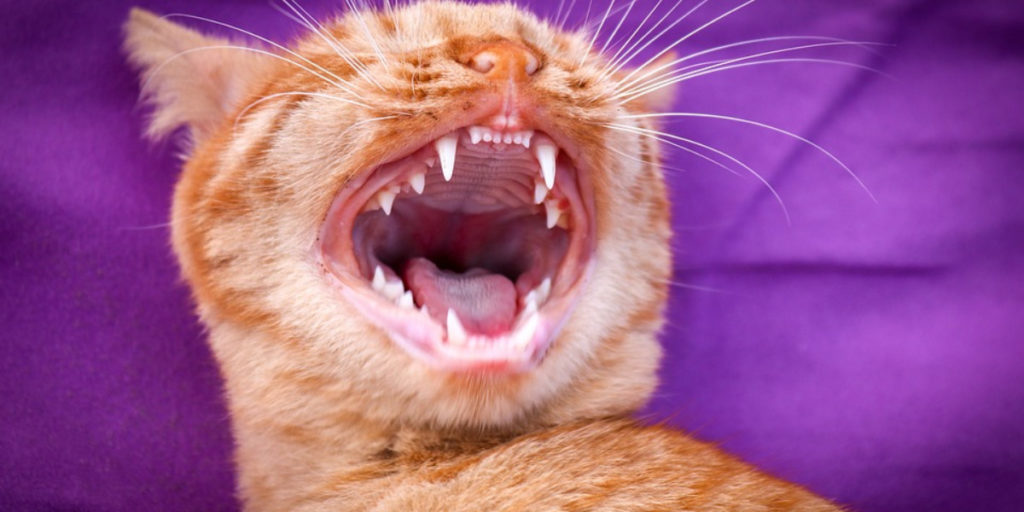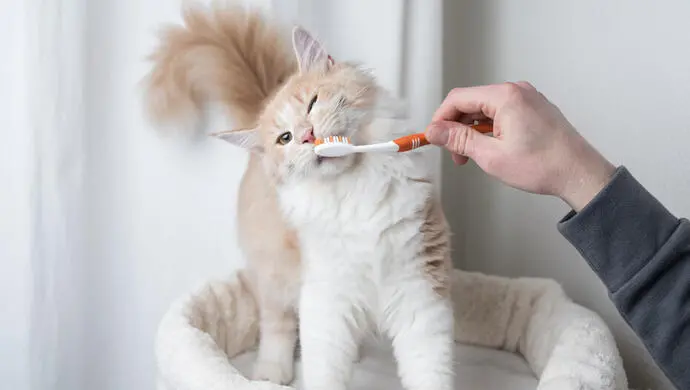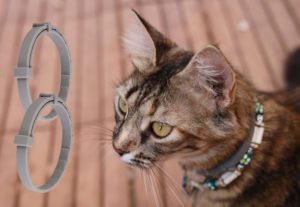Oral health holds a significant role in the well-being and grooming of your feline companion. Brushing your cat’s teeth is the best way to prevent plaque, tartar, and dental diseases, but not all cats are willing to cooperate with this routine. Fortunately, there are some alternative ways to keep your cat’s teeth clean without brushing. In this article, we will explore some of the most effective and natural methods to maintain your cat’s oral health.
Understanding Your Cat’s Teeth

Before we dive into the different dental care techniques. Let’s take a moment to understand your cat’s teeth.
How Many Teeth Does a Cat Have?
| Cat Total teeth | Cats have 30 teeth |
| Cat Teeth types | 12 incisors, 10 premolars, 4 canines, and 4 molars |
Unlike humans, cats do not chew their food thoroughly. They swallow it in large chunks. This means that their teeth do not get much mechanical cleaning from the food they eat. Therefore, cats are more prone to plaque and tartar buildup, which can lead to gum inflammation, tooth decay, and tooth loss.
Do Cat Teeth Need to Be Cleaned?
Yes, cat teeth need to be cleaned regularly to prevent dental problems. Dental problems can cause pain, discomfort, difficulty eating, bad breath, and infections. Dental disease can also affect your cat’s behavior and mood, making them less playful, affectionate, or sociable.
How Often Should You Brush Your Cat’s Teeth?

Ideally, you should brush your cat’s teeth every day or at least a few times a week. This will help remove plaque and bacteria from your cat’s teeth and gums before they harden into tartar. Tartar can only be removed by professional dental cleaning under anesthesia.
However, we understand that brushing your cat’s teeth may not be an easy task for some owners or cats. Some cats may resist or become aggressive when you try to brush their teeth. Some owners may not have the time or patience to brush their cat’s teeth regularly. In that case there are other ways to keep your cat’s teeth clean without brushing.
Do Cat Teeth Grow Back?
No, like human, cat teeth do not grow back once they fall out or are extracted. Cats have two sets of teeth in their lifetime: deciduous (baby) teeth and permanent (adult) teeth. Once the permanent teeth are in place, they do not grow back if they are lost or damaged.
How Can I Clean My Cat’s Teeth Without Brushing?
If you are looking for some effective and natural ways to clean your cat’s teeth without brushing, you can try some of the following methods:
1. Feed your cat a raw or dry diet: Raw meat and bones provide essential nutrients and enzymes for their oral health. It can help scrape off plaque and tartar from your cat’s teeth, as well. Dry kibble can also help clean your cat’s teeth by creating friction and stimulating saliva production.
However, be careful to choose a high-quality and grain-free diet that is suitable for your cat’s age, size, and health condition. You can also consult with your vet or a holistic veterinarian before switching to a raw or dry diet for your cat.
2. Give your cat dental treats and chews: Dental treats and chews are specially formulated to help reduce plaque and tartar buildup, freshen breath, and promote gum health in cats.
They usually contain ingredients such as seaweed, parsley, mint, or enzymes that can help prevent plaque formation and bacteria growth. Dental treats and chews are also appealing and fun for cats, as they satisfy their natural urge to chew and play.
3. Add supplements to your cat’s water or food: Supplements are products that you can add to your cat’s water or food to help improve their oral health. They usually contain natural ingredients such as apple cider vinegar, grapefruit seed extract, or probiotics that can help balance the pH level of your cat’s mouth, inhibit bacteria growth, and boost their immune system.
Supplements are easy and convenient to use, as you only need to follow the instructions on the label and add the recommended amount to your cat’s water or food.
4. Dental wipes for cats: Dental wipes are moistened pads that are designed to clean your cat’s teeth and gums. They are easier to use than toothbrushes, as you only need to wrap them around your finger and gently rub them on your cat’s teeth. Dental wipes can help remove plaque and bacteria from your cat’s mouth and prevent bad breath.
However, they may not be as effective as brushing in removing tartar or reaching the back teeth. Some dental wipes also contain ingredients that can help prevent plaque formation, such as chlorhexidine or zinc gluconate.
5. Dental gels and sprays for cats: Dental gels and sprays are products that you can apply to your cat’s teeth and gums without brushing. They usually contain enzymes or natural ingredients that can help break down plaque and tartar, reduce inflammation, and prevent bad breath.
Dental gels and sprays are convenient and easy to use, as you only need to squirt them into your cat’s mouth or rub them on their teeth with your finger. However, some cats may not like the taste or sensation of these products, and they may not be as effective as brushing in removing tartar or reaching the back teeth.
Dental Care Comparison Chart
To help you compare the different dental care products and techniques that we have discussed in this article, we have created a dental care comparison chart that summarizes their pros and cons.
| Product/Technique | Brushing |
| Pros | Most effective way to remove plaque and tartar Prevents bad breath, gum disease, and tooth loss Strengthens bond between you and your cat |
| Cons | Requires time, patience, and cooperation from you and your cat, May cause stress or anxiety for some cats, May not reach all areas of the mouth |
| Product/Technique | Dental gels and sprays for cats |
| Pros | Easy and convenient to use, Breaks down plaque and tartar from the teeth, Reduces inflammation and infection of the gums |
| Cons | May not be as effective as brushing, May not reach all areas of the mouth, May have an unpleasant taste or sensation for some cats |
| Product/Technique | Natural toothpaste alternatives |
| Pros | Safe and natural for cats, Has antibacterial and anti-inflammatory properties, May whiten teeth and freshen breath |
| Cons | May not be as effective as commercial toothpaste, May cause stomach upset or electrolyte imbalance in large amounts, May stain clothes or furniture |
| Product/Technique | Dental wipes |
| Pros | Easy and convenient to use, Removes plaque and bacteria from the mouth, Prevents bad breath |
| Cons | May not be as effective as brushing, May not reach all areas of the mouth, May contain ingredients that some cats may be allergic or sensitive to. |
| Product/Technique | Raw or dry diet |
| Pros | Provides essential nutrients and enzymes for oral health, Scrapes off plaque and tartar from the teeth, Stimulates saliva production |
| Cons | May pose health risks such as bacterial contamination, choking hazards, or nutritional imbalances, May not suit all cats’ preferences or needs, Requires consultation with vet or holistic veterinarian before switching |
| Product/Technique | Supplements |
| Pros | Appealing and fun for cats, Reduces plaque and tartar buildup, Promotes gum health |
| Cons | May not be as effective as brushing, May cause overfeeding or choking hazards, May contain ingredients that some cats may be allergic |
| Product/Technique | Dental treats and chews |
| Pros | Easy and convenient to use, Balances pH level of the mouth, Inhibits bacteria growth |
| Cons | May not be as effective as brushing, May cause digestive issues or allergic reactions in some cats, Requires consultation with vet or holistic veterinarian before using |
| Product/Technique | Professional dental cleaning |
| Pros | Removes plaque and tartar that cannot be removed by home care, Detects and treats any dental problems or complications early, Improves overall health |
| Cons | Requires anesthesia, which may pose some risks or complications for some cats, May be expensive or inaccessible for some owners, May cause stress or anxiety for some cats |
Conclusion
Keeping your cat’s teeth clean without brushing is possible and beneficial for your cat’s oral health and well-being. By using some of the alternative dental care products and techniques that we have discussed in this article, you can help prevent plaque and tartar buildup, gum disease, tooth decay, and tooth loss in your cat. You can also consult with your vet or a holistic veterinarian to find the best dental care routine for your cat, and to have regular dental check-ups and treatments if needed.
With a passion for cats and years of experience in cat care and grooming, I have gained valuable insights and expertise that I want to share with other cat lovers. I believe that every cat deserves the best care possible, and through this platform, I aim to empower cat owners like you to provide the utmost love and care for your feline companions.



